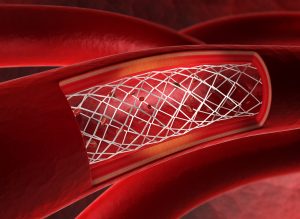
Your three main coronary arteries are responsible for bringing blood to the heart. When they start to become blocked, it can weaken the heart and eventually lead to a heart attack if the blockage isn't addressed and there isn't enough blood supply to the heart. On the left side of the heart, there are two coronary arteries responsible for providing rich blood supply to the heart to ensure it maintains daily function. Blockage of either could lead to left main disease, which requires quick and effective treatment to prevent a heart attack and other major cardiac issues.
Researchers Are Beginning to See the Benefits of a Fluoropolymer-based Drug-eluting Stents
Typically, the treatment for left main disease is a coronary artery bypass graft (CABG). In this type of a procedure, surgeons take a healthy blood vessel from the leg or another part of the body and connect it other arteries in the heart. The hope is that the blood will bypass the artery that is blocked. While CABG certainly can be life-saving, it does require a hospital stay and it a major surgery. In addition to that, the risk for complications in the short term and the longer recovery time do motivate medical researchers to see if there are any alternatives out there.
One promising new study that was published in the New England Journal of Medicine last month showed some promise for percutaneous coronary intervention (PCI) with everolimus-eluting stents. The study was also presented at the Cardiovascular Research Foundation's Transcatheter Cardiovascular Therapeutics 2016 meeting, which was held in Washington D.C. at the end of last month.
New York Presbyterian Hospital doctors randomized nearly 2,000 patients with left main disease to undergo either a PCI with a fluoropolymer-based everolimius-eluting stent or a CABG. Fluoropolymers are used for a wide variety of applications for their strength and durability, including for fluoropolymer tubing in the aerospace industry. The PCI patients and CABG patients were then compared on various metrics to determine if one was better than the other.
Researchers found that PCI was non-inferior to CABG, making it an option for some patients who can tolerate both. As PCI typically involves faster recovery and a reduced hospital stay, it might be an option for some surgeons who see CABG as too risky or costly.


